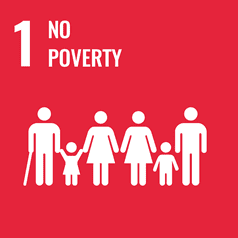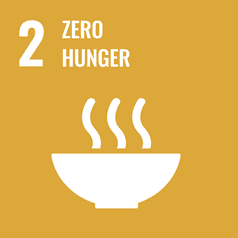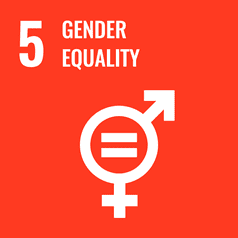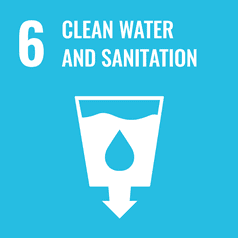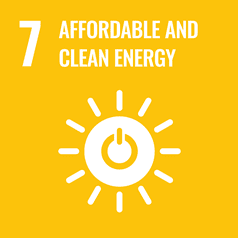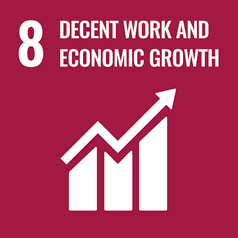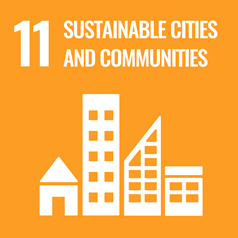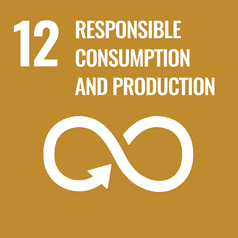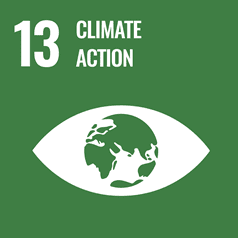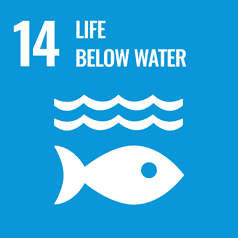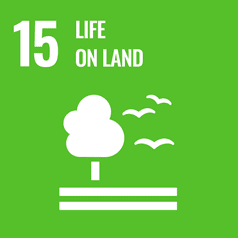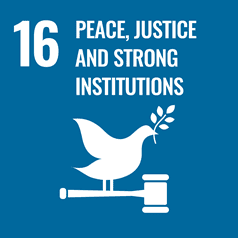| 2025 |
Bonevski B, Rich J, Lubman DI, Segan C, Baker A, Borland R, Oldmeadow C, Gartner C, Walker N, Dunlop A, Daglish M, Bullen C, Bauld L, Jacka D, Garfield JBB, McCrohan R, Guillaumier A, Manning V, 'Nicotine e-cigarettes for smoking cessation following discharge from smoke-free inpatient alcohol and other drug withdrawal services: a pragmatic two-arm, single-blinded, parallel-group, randomised controlled trial', Lancet Public Health, 10, e568-e577 (2025) [C1]
|
|
|
| 2024 |
Trigg J, Rich J, Williams E, Baker A, Bauld L, Borland R, Bullen C, Daglish M, Dunlop A, Gartner C, Jacka D, Lubman D, Manning V, McCrohan R, Segan C, Walker N, Bonevski B, 'A qualitative study of using nicotine products for smoking cessation after discharge from residential drug and alcohol treatment in Australia', DRUG AND ALCOHOL REVIEW, 43, 1116-1131 (2024) [C1]
|
|
Open Research Newcastle |
| 2024 |
Trigg J, Rich J, Williams E, Gartner CE, Guillaumier A, Bonevski B, 'Perspectives on limiting tobacco access and supporting access to nicotine vaping products among clients of residential drug and alcohol treatment services in Australia', TOBACCO CONTROL, 33, e192-e198 (2024) [C1]
|
|
Open Research Newcastle |
| 2022 |
Winifred A-D, Jane RL, Brian K, Amponsah-Tawiah K, Carole J, 'Mental health and workplace factors: comparison of the Ghanaian and Australian mining industry', BMC HEALTH SERVICES RESEARCH, 22 (2022) [C1]
|
|
Open Research Newcastle |
| 2022 |
Akter S, Rich JL, Davies K, Inder KJ, 'Reflexivity Conducting Mixed Methods Research on Indigenous Women's Health in Lower and Middle-Income Countries-An Example From Bangladesh', INTERNATIONAL JOURNAL OF QUALITATIVE METHODS, 21 (2022) [C1]
|
|
Open Research Newcastle |
| 2022 |
Asare-Doku W, James C, Rich JL, Amponsah-Tawiah K, Kelly B, '"Mental health is not our core business": A qualitative study of mental health supports in the Ghanaian mining industry', SAFETY SCIENCE, 145 (2022) [C1]
Background: There is growing recognition of mental health aspects of workplace health and safety. Mining is a significant enterprise in the African continent; however, ... [more]
Background: There is growing recognition of mental health aspects of workplace health and safety. Mining is a significant enterprise in the African continent; however, limited attention has been given to mental health in mining in this region. Ghana is the largest gold producer in Africa and mining contributes significantly to the economy. Mental health problems can have significant implications for the wellbeing and safety of mining employees, yet little is known about this in diverse geographic and cultural contexts. This study aims to explore mental health and available supports from the perspective of managers in mining companies in Ghana. Methods: A qualitative descriptive methodology was used to collect in-depth information from managers of international mining companies in Ghana. After receiving institutional ethics approval, all managers from the five mine sites were invited to participate in an interview. All interviews were audiotaped and transcribed verbatim for thematic analysis. Results: Three major themes were identified: Health Promotion, which explored health assessments and health promotion onsite activities; Onsite Support which included policy, human resources and medical supports; thirdly External Support, examined formal and informal supports such as family and social networks. Conclusion: Mental health was implied in various activities undertaken at the mine rather than being specific to targeting mental health directly. This study demonstrates the absence of mental health supports in mining in Ghana. Efforts should be made to incorporate mental health programs within the general health and safety policy, and an understanding of the local social norms and culture is vital.
|
|
Open Research Newcastle |
| 2022 |
Skelton E, Rich J, Handley T, Bonevski B, 'Prevalence of cannabis use among tobacco smokers: a systematic review protocol', BMJ OPEN, 12 (2022)
|
|
|
| 2022 |
Askland HH, Shannon B, Chiong R, Lockart N, Maguire A, Rich J, Groizard J, 'Beyond migration: a critical review of climate change induced displacement', ENVIRONMENTAL SOCIOLOGY, 8, 267-278 (2022) [C1]
Scholarship on displacement caused by the effects of climate change generally approaches displacement as the involuntary movement of people. However, in this article, w... [more]
Scholarship on displacement caused by the effects of climate change generally approaches displacement as the involuntary movement of people. However, in this article, we argue that there are uncertainties surrounding Climate Change Induced Displacement (CCID) that are partly caused by discursive ambiguity around the notion of 'displacement'¿a concept that remains poorly defined in the context of climate change research¿and a conflation between displacement due to quick-onset disaster events and the cumulative pressure of living in an environment marked by a disrupted climate. Reflecting on the impacts of the Australian bushfires in 2019¿20, we conceptualise CCID beyond migration as an event and a physical relocation across geographical space. Even fast-onset disaster events, such as the Australian bushfires, can dispossess and displace beyond the immediate threat of the fire front; but this displacement is not necessarily aligned with movement and migration, nor is it evenly proportioned across populations. Based on a review of existing literature on CCID, we identify three key tensions shaping scholarship on CCID: conceptualisation; distribution of risk and impact; and discursive framing. Together, we contend, these tensions highlight the imperative of striving for conceptual clarity and awareness of distributional inequities of risk and vulnerabilities.
|
|
Open Research Newcastle |
| 2022 |
Akter S, Davies K, Rich JL, Inder KJ, 'Community perspectives of barriers indigenous women face in accessing maternal health care services in the Chittagong Hill Tracts, Bangladesh', ETHNICITY & HEALTH, 27, 1222-1240 (2022) [C1]
Objectives: Bangladesh has achieved notable success in improving maternal health by increasing women's access to good quality and low-cost maternal health care (MH... [more]
Objectives: Bangladesh has achieved notable success in improving maternal health by increasing women's access to good quality and low-cost maternal health care (MHC) services. However, the health system of Bangladesh has earned criticism for not ensuring equitable MHC access for all women, particularly for Indigenous women in the Chittagong Hill Tracts (CHT). Little is known about Indigenous communities' perspectives on these inequalities in MHC service access in the CHT. Therefore, this study aimed to explore Indigenous communities' perspectives on challenges and opportunities for improving MHC service access in the CHT. Design: This qualitative descriptive study was conducted in two sub-districts of Khagrachhari between September 2017 and February 2018. Eight Indigenous key informants from three Indigenous communities (Chakma, Marma and Tripura) were recruited via snowballing and purposive techniques and participated in face-to-face, semi-structured interviews. Key informants comprised community leaders and health care providers. Data were analysed thematically using Nvivo12 software. Results: Findings suggest that distance, poor availability of resources and infrastructure, lack of community engagement in the design of health interventions, Indigenous cultural beliefs, misconceptions about MHC services, and maltreatment from health care providers were the key barriers to accessing MHC services; all are interconnected. Indigenous women faced humiliation and maltreatment from MHC staff. Failure to provide a culturally-safe environment suggests a lack of cultural competency among health staff, including Indigenous staff. Conclusion: Findings suggest that cultural competency training for all health care providers is needed to improve cultural appropriateness and accessibility of services. Refresher training and undisrupted supply of basic MHC services for front-line care providers will benefit the entire community and will likely be cost-effective for the government. Designing health programmes through extensive community consultation is essential.
|
|
Open Research Newcastle |
| 2021 |
Asare-Doku W, Rich JL, Kelly B, Amponsah-Tawiah K, James C, 'Mental health and mining: the Ghanaian gold mining story', INTERNATIONAL ARCHIVES OF OCCUPATIONAL AND ENVIRONMENTAL HEALTH, 94, 1353-1362 (2021) [C1]
Purpose: There is limited empirical evidence regarding mental health in workplace settings in Africa. Gold mining is a major industry in Ghana, and this study investiga... [more]
Purpose: There is limited empirical evidence regarding mental health in workplace settings in Africa. Gold mining is a major industry in Ghana, and this study investigated mental health-related symptoms and the factors contributing to such symptoms among employees in the Ghanaian. Methods: A cross-sectional survey design study was used to collect data from employees working in the mining industry across five gold mines in Ghana. All mining employees were invited to participate in the survey. Sociodemographic and work characteristic data (including job content) was collected alongside measures of recent mental health-related symptoms (Kessler-10). Questionnaires were administered in English. Data were analysed using descriptive statistics and logistic regression models. Results: Of 1165 participants (response rate: 78%), 87% were male and 13% were female. The majority of the participants were in the 25¿34 age category. Psychological distress was categorized as low (62.6%), moderate (24.3%), high (10.0%) and very high (3.2%). Shift type (working 12¿h or more), physical working conditions and financial factors were significantly associated with psychological distress. Job resources and job demands was not significantly associated with levels of psychological distress. Conclusion: This is the first study to explore mental health in the Ghanaian gold mining industry. The findings identify workplace factors associated with psychological distress in the mining industry in Ghana and support the importance of promoting mental health as part of workplace health and safety strategy to improve mental health across the mining population.
|
|
Open Research Newcastle |
| 2021 |
Luong TT, Handley T, Austin E, Kiem A, Rich J, Kelly B, 'New Insights Into the Relationship Between Drought and Mental Health Emerging From the Australian Rural Mental Health Study', Frontiers in Psychiatry, 12 (2021) [C1]
|
|
Open Research Newcastle |
| 2021 |
Austin E, Kiem AS, Rich J, Perkins D, Kelly B, 'How Effectively Do Drought Indices Capture Health Outcomes? An Investigation from Rural Australia', WEATHER CLIMATE AND SOCIETY, 13, 823-845 (2021) [C1]
Drought is a global threat to public health. Increasingly, the impact of drought on mental health and wellbeing is being recognized. This paper investigates the relatio... [more]
Drought is a global threat to public health. Increasingly, the impact of drought on mental health and wellbeing is being recognized. This paper investigates the relationship between drought and well-being to determine which drought indices most effectively capture well-being outcomes. A thorough understanding of the relationship between drought and well-being must consider the (i) three aspects of drought (duration, frequency, and magnitude); (ii) different types of drought (meteorological, agricultural, etc.); and (iii) the individual context of specific locations, communities, and sectors. For this reason, we used a variety of drought types, drought indices, and time windows to identify the thresholds for wet and dry epochs that enhance and suppress impacts to well-being. Four postcodes in New South Wales (NSW), Australia, are used as case studies in the analysis to highlight the spatial variability in the relationship between drought and well-being. The results demonstrate that the relationship between drought indices and well-being outcomes differs temporally, spatially, and according to drought type. This paper objectively tests the relationship between commonly used drought indices and wellbeing outcomes to establish whether current methods of quantifying drought effectively capture well-being outcomes. For funding, community programs, and interventions to result in successful adaptation, it is essential to critically choose which drought index, time window, and well-being outcome to use in empirical studies. The uncertainties associated with these relationships must be accounted for, and it must also be realized that results will differ on the basis of these decisions.
|
|
Open Research Newcastle |
| 2020 |
Austin EK, Handley T, Kiem AS, Rich JL, Perkins D, Kelly B, 'Drought, Wellbeing and Adaptive Capacity: Why Do Some People Stay Well?', International Journal of Environmental Research and Public Health, 17 (2020) [C1]
|
|
Open Research Newcastle |
| 2020 |
Austin EK, Rich JL, Kiem AS, Handley T, Perkins D, Kelly BJ, 'The concerns about climate change among rural residents in Australia.', Journal of Rural Studies, 75, 98-109 (2020) [C1]
|
|
Open Research Newcastle |
| 2020 |
Asare-Doku W, Rich J, Kelly B, James C, 'Mental health interventions in the mining industry: a narrative review', MENTAL HEALTH REVIEW JOURNAL, 25, 153-167 (2020) [C1]
Purpose: Previous research has suggested high levels of unaddressed mental health needs among male-dominated work settings. The mining industry has been a recent focus ... [more]
Purpose: Previous research has suggested high levels of unaddressed mental health needs among male-dominated work settings. The mining industry has been a recent focus internationally. This paper aims to critically examine research regarding organizational mental health interventions for people working in mining industries. Design/methodology/approach: The narrative review used a systematic standardized search strategy in six databases and grey literature from 1990 to 2019. Findings: Of the 418 studies identified, seven studies (five quantitative and two qualitative studies) met the inclusion criteria. Analysis of these studies revealed the organisational interventions available to address mental health needs of miners. Interventions were categorised into organisational and individual-focused approaches. Evidence shows there is great potential in conducting workplace mental health programs, yet further research is required to create a strong evidence base for substantiated policy and practice implications. Practical implications: Mental health interventions and programs should be available in mining industry to enhance mental health. Organisations can also improve mental health by implementing significant changes in the work environment and identifying workplace factors that induce strain and contribute to psychological distress in employees. Attempt can be made at restructuring safety policies and practices to include mental health, addressing organisational structures such as work schedules and providing training for managers and supervisors. Originality/value: This review focuses on the unique characteristics pertaining to male-dominated mining industries and workplace mental health interventions which are aimed at supporting employee mental health.
|
|
Open Research Newcastle |
| 2020 |
Akter S, Davies K, Rich JL, Inder KJ, 'Barriers to accessing maternal health care services in the Chittagong Hill Tracts, Bangladesh: A qualitative descriptive study of Indigenous women's experiences.', PloS one, 15 (2020) [C1]
|
|
Open Research Newcastle |
| 2020 |
Lockart N, Kiem AS, Chiong R, Askland HH, Maguire A, Rich JL, 'Projected change in meteorological drought characteristics using regional climate model data for the Hunter region of Australia', Climate Research, 80, 85-104 (2020) [C1]
|
|
Open Research Newcastle |
| 2020 |
Akter S, Rich JL, Davies K, Inder KJ, 'Prevalence and factors associated with knowledge and access to delivery services at primary health care facilities amongst indigenous women in Khagrachhari district Bangladesh - A cross-sectional study', MIDWIFERY, 90 (2020) [C1]
|
|
Open Research Newcastle |
| 2020 |
Akter S, Rich JL, Davies K, Inder KJ, 'Prevalence and factors associated with antenatal care service access among Indigenous women in the Chittagong Hill Tracts, Bangladesh: A cross-sectional study', PLOS ONE, 15 (2020) [C1]
|
|
Open Research Newcastle |
| 2020 |
Forder PM, Rich J, Harris S, Chojenta C, Reilly N, Austin M-P, Loxton D, 'Honesty and comfort levels in mothers when screened for perinatal depression and anxiety', WOMEN AND BIRTH, 33, E142-E150 (2020) [C1]
Purpose: To evaluate the degree of honesty and level of comfort reported by women when questioned about their emotional wellbeing during the perinatal period; to invest... [more]
Purpose: To evaluate the degree of honesty and level of comfort reported by women when questioned about their emotional wellbeing during the perinatal period; to investigate if honesty and comfort are associated with perinatal depression or perinatal anxiety; and to examine the reasons why women may not always respond honestly. Methods: Qualitative and quantitative data from 1597 women from the cross-sectional perinatal mental health substudy (part of the Australian Longitudinal Study on Women's Health) were analysed using a mixed methods approach. Results: When questioned by their health practitioner about their emotional wellbeing in the perinatal period, 20.7% of women indicated they had not always responded honestly. Reasons for not being honest reflected four main themes: normalizing of symptoms/coping; negative perceptions (self-and others); fear of adverse repercussions; and fear of involvement of health services (trust and confidentiality). The 38.9% of women who did not feel comfortable when questioned by their health practitioner about their emotional wellbeing were four times more likely to report perinatal depression (odds ratio = 4.09; 95% confidence interval = 2.55, 6.57) and nearly twice as likely to report perinatal anxiety (odds ratio = 1.90; 95% confidence interval = 1.24, 2.94) than other women. Conclusions: Women who are most likely to need mental health care during the perinatal period are also those least likely to be honest about their mental health. A non-judgemental, open and reassuring approach by clinicians may help to reduce the stigma and fears contributing to lack of honest responses, and improve early diagnosis and treatment of mental health problems.
|
|
Open Research Newcastle |
| 2019 |
Akter S, Rich J, Davies K, Inder K, 'Access to maternal healthcare services among Indigenous women in the Chittagong Hill Tracts, Bangladesh: A cross-sectional study', BMJ Open, 9 (2019) [C1]
|
|
Open Research Newcastle |
| 2019 |
Akter S, Davies K, Rich JL, Inder KJ, 'Indigenous women's access to maternal healthcare services in lower- and middle-income countries: a systematic integrative review', INTERNATIONAL JOURNAL OF PUBLIC HEALTH, 64, 343-353 (2019) [C1]
Objectives: Globally, Indigenous people have lower-health status compared to non-Indigenous people due to unequal access to health care. Barriers or enablers to accessi... [more]
Objectives: Globally, Indigenous people have lower-health status compared to non-Indigenous people due to unequal access to health care. Barriers or enablers to accessing maternal health services by Indigenous women are not well researched. This review aims to determine accessibility and utilisation of maternal primary healthcare services among Indigenous women in lower- and middle-income countries. Methods: We conducted a systematic integrative review of published and grey literature published between 2000 and 2017. Studies on maternal healthcare service utilisation by Indigenous women in lower- and middle-income countries were included. From 3092 articles identified, 10 met the eligibility criteria. Results: The most prominent barrier to accessing maternal primary healthcare services was the top-down nature of intervention programmes, which made programmes culturally unfriendly for Indigenous women. Distance, cost, transport, accommodation, language barriers and lack of knowledge about existing services also impacted access. Conclusions: Findings provided insights into understanding the gaps in existing policies for Indigenous women and their access to maternal health services. Results suggested that efforts be made to ensure appropriate programmes for Indigenous women's maternal health right.
|
|
Open Research Newcastle |
| 2019 |
Sayers E, Rich J, Rahman MM, Kelly B, James C, 'Does Help Seeking Behavior Change Over Time Following a Workplace Mental Health Intervention in the Coal Mining Industry?', JOURNAL OF OCCUPATIONAL AND ENVIRONMENTAL MEDICINE, 61, E282-E290 (2019) [C1]
Objectives: To investigate help seeking behavior and attitudes to mental health in mining employees. Methods: A pre-post survey study of employees from two Australian c... [more]
Objectives: To investigate help seeking behavior and attitudes to mental health in mining employees. Methods: A pre-post survey study of employees from two Australian coal mines. Data were collected prior to, at baseline, at 6 and 18 months following delivery of the MATES in mining (MIM) peer support mental health intervention. Results: Help seeking behaviors increased, with participants' sex, age, relationship status, shift type, and psychological distress significantly associated with likelihood of seeking help (P < 0.05). In relation to stigma, significantly more participants' disagreed that they would be treated differently by friends or colleagues following disclosure of mental illness (P < 0.01). Conclusions: Results provide an understanding of help seeking behaviors of mining employees; support the MATES in Mining peer support program in the men dominated industry and provide information to guide mental health workplace program development more broadly.
|
|
Open Research Newcastle |
| 2019 |
Handley TE, Rich J, Lewin TJ, Kelly BJ, 'The predictors of depression in a longitudinal cohort of community dwelling rural adults in Australia', SOCIAL PSYCHIATRY AND PSYCHIATRIC EPIDEMIOLOGY, 54, 171-180 (2019) [C1]
Purpose: Many major studies of depression in Australia are under-representative of rural and remote residents, limiting the generalizability of their findings. This stu... [more]
Purpose: Many major studies of depression in Australia are under-representative of rural and remote residents, limiting the generalizability of their findings. This study explores the contributions of a range of individual, social, and community factors to the trajectory of depressive symptoms among a cohort of rural and remote residents. Methods: Data from four waves of the Australian Rural Mental Health Study (baseline n = 2639), a 5¿year longitudinal study of rural community residents, were examined within generalized linear mixed models to predict depressive symptoms. Depression was measured using the PHQ-9, with key correlates including social support, employment status, financial wellbeing, neuroticism, and rural community factors. Results: Moderate-to-severe depression was reported by 6.3% of the baseline sample. Being permanently unable to work resulted in over a threefold increase in the odds of depression at the following survey wave. Self-rated financial hardship was associated with a fourfold increase in the odds of future depression, as was a high level of community concerns. Neuroticism and tobacco use also made a significant independent contribution to future depressive symptoms. Interpersonal support was a protective factor, reducing the odds of next-wave depression by 64%. Conclusion: Financial and employment-related difficulties appear to be important risk factors for depression, and targeting individuals experiencing such difficulties may be an effective means of reducing depression among certain sub-groups. Strategies to prevent depression in rural and remote Australia may benefit from a focus on interpersonal and community-level support, as the effects of this support are lasting and contribute to a reduced likelihood of depressive episodes in future years.
|
|
Open Research Newcastle |
| 2018 |
Rich J, Handley T, Inder K, Perkins D, 'An experiment in using open-text comments from the Australian Rural Mental Health Study on health service priorities.', Rural and remote health, 18 (2018) [C1]
|
|
Open Research Newcastle |
| 2018 |
Handley T, Rich J, Davies K, Lewin T, Kelly B, 'The Challenges of Predicting Suicidal Thoughts and Behaviours in a Sample of Rural Australians with Depression.', International journal of environmental research and public health, 15, 1-9 (2018) [C1]
|
|
Open Research Newcastle |
| 2018 |
Rich JL, Wright SL, Loxton D, 'Older rural women living with drought', Local Environment, 23, 1141-1155 (2018) [C1]
|
|
Open Research Newcastle |
| 2018 |
Austin EK, Handley T, Kiem AS, Rich JL, Lewin TJ, Askland HH, Askarimarnani SS, Perkins DA, Kelly BJ, 'Drought-related stress among farmers: findings from the Australian Rural Mental Health Study.', The Medical journal of Australia, 209, 159-165 (2018) [C1]
|
|
Open Research Newcastle |
| 2017 |
Rich JL, Handley T, Davies K, Perkins D, 'Understanding the Mental Health of Rural Young Adults: Risk and Protective Factors', International Journal of Mental Health and Psychiatry, 3, 1-4 (2017) [C1]
|
|
Open Research Newcastle |
| 2016 |
Tynan RJ, Considine R, Rich JL, Skehan J, Wiggers J, Lewin TJ, James C, Inder K, Baker AL, Kay-Lambkin F, Perkins D, Kelly BJ, 'Help-seeking for mental health problems by employees in the Australian Mining Industry', BMC Health Services Research, 16 (2016) [C1]
|
|
Open Research Newcastle |
| 2016 |
Kubuabola S, Rich J, Shah M, 'Gender equity: Women in academia in Fiji', Journal of Institutional Research South East Asia, 14, 71-82 (2016) [C1]
Universities in many countries are facing the challenge of recruiting and retaining high quality academics. The exit of baby boomers in the academic workforce is signif... [more]
Universities in many countries are facing the challenge of recruiting and retaining high quality academics. The exit of baby boomers in the academic workforce is significant with lack of strategy to attract, support and retain women in their early career as academics and researchers. This challenge is enormous in developing countries despite democracy, academic freedom, stability, sustainable economy, and free education at higher degree research level. This paper outlines the current dilemma in Fiji in relation to the succession of women in academic roles. The paper analyses the representation of female academics at the University of the South Pacific (USP) and strongly argues the need for higher education reforms which includes strategies to provide opportunity for young females and other underrepresented groups in the academic workforce. The paper also suggests possible strategies to increase the participation of women in the academic workforce in Fiji based on current and future political environment.
|
|
Open Research Newcastle |
| 2016 |
Rich J, Booth A, Rowlands A, Redd P, 'Bushfire support services and the need for evaluation: the 2013 Blue Mountains experience', AUSTRALIAN JOURNAL OF EMERGENCY MANAGEMENT, 31, 8-12 (2016) [C1]
In 2013, the Blue Mountains region of NSW experienced devastating bushfires. In response, the Step By Step Blue Mountains Bushfire Support Service was established by th... [more]
In 2013, the Blue Mountains region of NSW experienced devastating bushfires. In response, the Step By Step Blue Mountains Bushfire Support Service was established by the Ministry of Police and Emergency Services and a local Blue Mountains service, Gateway Family Support. The service was to support bushfire-affected community members through a strengthsbased and solution-focused approach. This approach has been used in other support services but limited evidence exists on the effectiveness of its use in disaster recovery. The integration of research in the early stages of disaster recovery service design may prove a valuable way to support the work of governments and service delivery organisations and is an important aspect of disaster preparedness and community wellbeing. This paper highlights the vulnerability of the Blue Mountains region to bushfire and examines the 2013 response by the Ministry for Police and Emergency Services Disaster Welfare Service (DWS) in association with Gateway Family Services. The DWS and Gateway Family Services collaborated to implement the service. This paper concludes that support services should be flexible in their response to dealing with those recovering from traumatic experiences such as bushfires. It demonstrates that evaluation of existing disaster support programs could better inform future disaster responses and services to assist communities to better cope and rebuild their lives.
|
|
Open Research Newcastle |
| 2016 |
Handley TE, Ventura AD, Browne JL, Rich J, Attia JR, Reddy P, Pouwer F, Speight J, 'Suicidal ideation reported by adults with Type 1 or Type 2 diabetes: results from Diabetes MILESAustralia', DIABETIC MEDICINE, 33, 1582-1589 (2016) [C1]
Aims: To examine the prevalence and correlates of suicidal ideation (SI) in a community-based sample of adults with Type 1 or Type 2 diabetes. Methods: Participants wer... [more]
Aims: To examine the prevalence and correlates of suicidal ideation (SI) in a community-based sample of adults with Type 1 or Type 2 diabetes. Methods: Participants were 3338 adults aged 18¿70 years with Type 1 diabetes (n = 1376) or Type 2 diabetes (non-insulin: n = 1238; insulin: n = 724) from a national survey administered to a random sample registered with the National Diabetes Services Scheme. Depression and SI were assessed using the Patient Health Questionnaire, and diabetes-specific distress with the Problem Areas In Diabetes scale. Separate logistic regression analyses by diabetes type/treatment were used to determine relative contribution to SI. Results: Overall, we observed a SI rate of 14% in our sample. Participants with Type 2 diabetes using insulin reported more frequent depressive symptoms, and were more likely to report recent SI (19%) compared with those with either Type 1 diabetes or Type 2 diabetes not using insulin (14 and 12%, respectively). After controlling for depression, there was little difference in the prevalence of SI between diabetes types/treatments, but higher diabetes-specific distress significantly increased the odds of SI. Conclusions: As SI is a significant risk factor for a suicide attempt, the findings have implications for healthcare professionals, pointing to the importance of adequate screening and action plans for appropriate follow-up of those reporting depression. Our findings are also indicative of the psychological toll of diabetes more generally, and the need to integrate physical and mental healthcare for people with diabetes.
|
|
Open Research Newcastle |
| 2015 |
Coombe J, Rich JL, Booth A, Rowlands A, Mackenzie L, Reddy P, 'Supporting Rural Australian Communities after Disaster: The Warrumbungle Bushfire Support Coordination Service', PLOS Current Disasters, Edition 1 (2015) [C1]
|
|
Open Research Newcastle |
| 2013 |
Rich JL, Byrne JM, Curryer C, Byles JE, Loxton D, 'Prevalence and correlates of depression among Australian women: A systematic literature review, January 1999- January 2010', BMC Research Notes, 6 (2013) [C1]
|
|
Open Research Newcastle |
| 2013 |
Rich JL, Chojenta C, Loxton D, 'Quality, Rigour and Usefulness of Free-Text Comments Collected by a Large Population Based Longitudinal Study - ALSWH', PLOS ONE, 8 (2013) [C1]
|
|
Open Research Newcastle |
| 2012 |
Rich JL, Wright SL, Loxton DJ, ''Patience, hormone replacement therapy and rain!' Women, ageing and drought in Australia: Narratives from the mid-age cohort of the Australian Longitudinal Study on Women's Health', Australian Journal of Rural Health, 20, 324-328 (2012) [C1]
|
|
Open Research Newcastle |
| 2012 |
Powers JR, Loxton DJ, Baker J, Rich JL, Dobson AJ, 'Empirical evidence suggests adverse climate events have not affected Australian women's health and well-being', Australian and New Zealand Journal of Public Health, 36, 452-457 (2012) [C1]
|
|
Open Research Newcastle |




